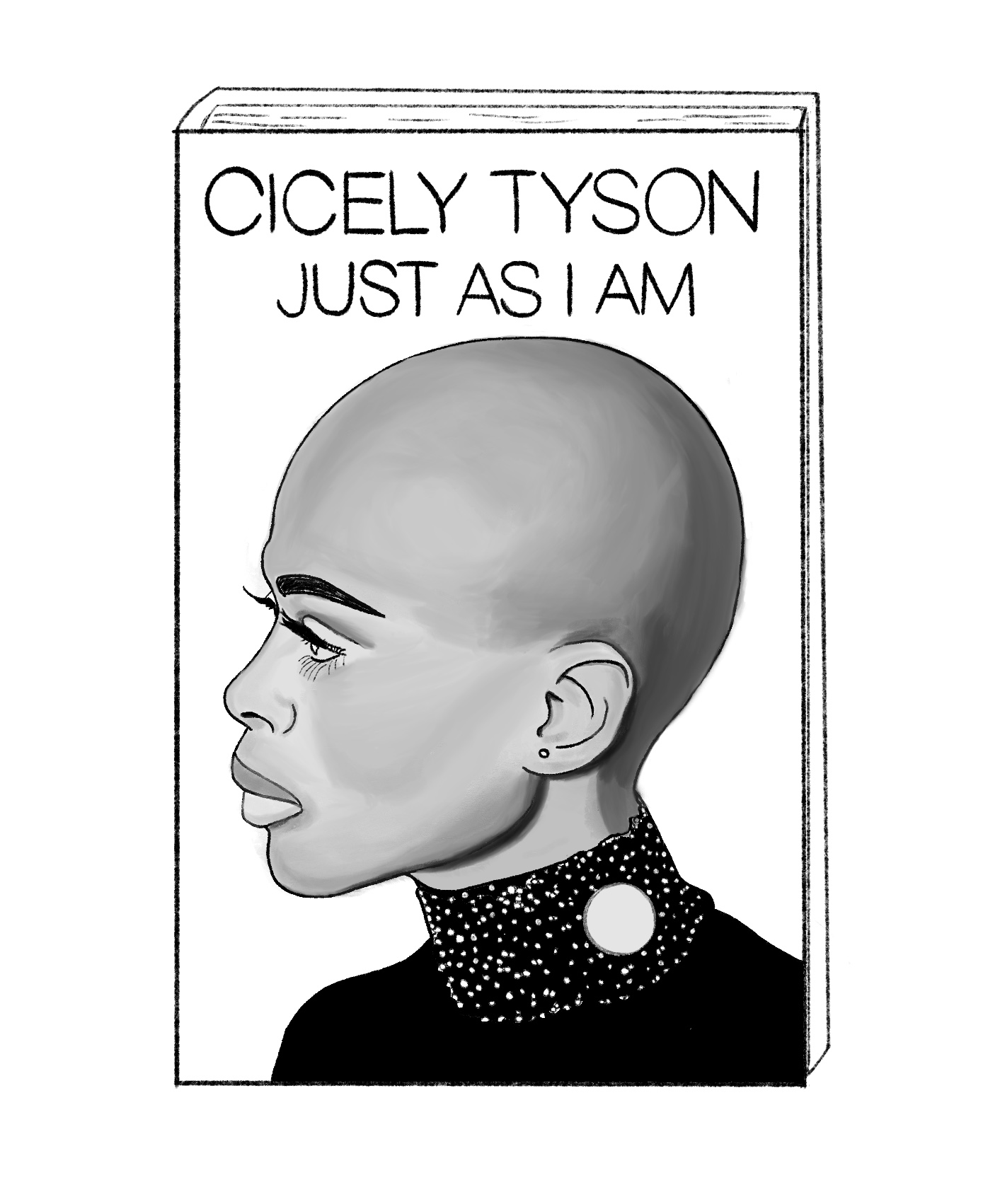
Content warning: This article discusses sexual assault.
On Jan. 27, Cicely Tyson, an actress renowned for her risk-taking as a Black woman in a white-dominated industry, passed away at age 96. With over 60 years of honing her craft, Tyson received the Presidential Medal of Freedom, the highest civilian award in the United States, and became the first Black woman to win an honorary Academy Award.
Two days before her death, Tyson released her memoir, “Just As I Am,” in collaboration with New York Times bestselling author Michelle Burford.
Tyson takes a risk by devoting almost a third of her memoir to her childhood and early adulthood before fame. The daughter of two immigrants from Nevis, an island in the West Indies, Tyson grew up in East Harlem within a tight-knit Episcopalian community. At age 17, Tyson gave birth to her daughter, Joan.
“It is a heartbreaking thing for children to have children,” she wrote.
Her high school principal barred her from finishing her senior year after seeing an invitation to Joan’s christening circulating among the student body. In order to graduate, Tyson had to attend the night program.
“I felt undeterred in my quest to earn my diploma,” Tyson wrote, while admitting that the principal’s decision was “devastating.”
After graduating, Tyson worked as a typist and secretary at the American Red Cross. One day, while window shopping, a man stopped her and asked if she was a model. The offhand comment led Tyson to seek representation with Barbara Watson’s modeling agency in Harlem. Her modeling work would lead to an illustrious acting career, portraying figures like Harriet Tubman and Coretta Scott King on-screen.
Tyson believed that “my tideshift, my sharp turn-around (from typist to actress) had the Savior’s handprints all over it.”
In 1963, Tyson became the first Black woman to wear her natural hair on television on “East Side/West Side,” a CBS drama about social workers in New York. Tyson received letters from hairstylists around the country, who noted that the demand for female barbers had soared, while requests for chemical services to straighten Black women’s hair plummeted.
In “Just As I Am,” Tyson revealed that she had not planned to start a natural hair movement in the 1960s.
“Any time I’ve changed my hair over the years of my career, it has had nothing to do with me personally. It has always been about being authentic to the character, about staying true to her essence,” Tyson wrote.
Tyson’s decision to wear her natural hair on TV and its impact on Black women nationwide provided powerful testimony to the old adage “the personal is political.” Tyson risked being fired by her white directors, some of whom later said they had wanted Tyson to wear her hair natural, but never knew how to broach the subject.
In addition to making unprecedented decisions about her hair on TV, Tyson was selective about which roles she chose to take, a form of protest that severely limited her paycheck during the early years of her career.
“Fifty years after I made a silent pact with myself to play women whose legacies uplift (Black women), that vow still guides me,” Tyson wrote before her passing.
“Just As I Am” is at its best when Tyson scrutinizes the “strong Black woman” stereotype, a trope that simplifies her seven decade-long legacy. In one heartbreaking passage, Tyson remembers the aftermath of when Paul Mann sexually assaulted her at his and Lloyd Richards’ New York acting school.
“When someone violates you sexually, it does not simply haunt and grieve you; it alters the very shape of your soul,” she wrote. “Contrary to mythologies surrounding the unflinching nature of African American women, we too experience trauma. Black women, our essence, our emotional intricacies, the indignities we carry under our bones, are the most deeply misunderstood human beings in history.”
At the exhilarating close of “Just As I Am,” Tyson addressed young Black women directly.
“I know that swivel in your hips, that fervor in your testimony, that ebullience in your stride, that flare in your song,” she wrote. “The fact that others are constantly trying to diminish you, ever attempting to dismiss your talents, even as they mimic them, is proof of your uniqueness.”
As she neared a century of life, Tyson observed that people often asked her what legacy she wanted to leave behind.
“I want to be recalled as one who squared her shoulders in the service of Black women, as one who made us walk taller and envision greater for ourselves,” Tyson said.
Subscribe to the Mossy Log Newsletter
Stay up to date with the goings-on at Lewis & Clark! Get the top stories or your favorite section delivered to your inbox whenever we release a new issue.

Leave a Reply